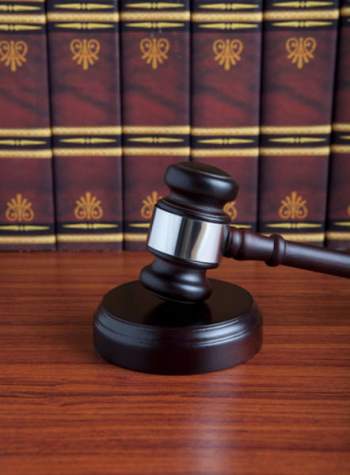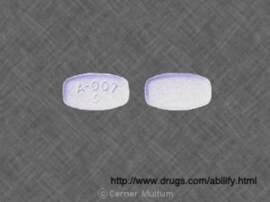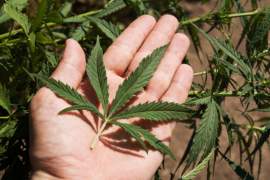
Volstead Act

VOLSTEAD ACT TEXT What is the Volstead Act? The Volstead Act (formally known as the National Prohibition Act) was the piece of legislation that effectively enabled the Eighteenth Amendment which ultimately established prohibition in the United States. Introduced to Congress in 1919, the Volstead Act was deemed necessary to elucidate on the provisions of the Eighteenth Amendment. The Eighteenth Amendment, which stated that the manufacture, sale or transportation of intoxicating liquors within the United States and all territories subject to the nation is prohibited, was deemed brief and ambiguous in regards to its provisions. The primary question regarding the Amendment revolved around the definition of “intoxicating liquors”. This term, as well as many others, needed specific legal clarification as well as the attachment of penalties for its proper legislation and enforcement to occur. Thus, the required enabling of the Eighteenth Amendment was known as the Volstead Act—the legislation was named after Congressman Andrew Volstead who served as chair of the Senate Judiciary Committee. Although Volstead sponsored the legislation, the Volstead Act was written by Wayne Wheeler of the Anti-Saloon League. Wheeler conceived the Volstad act and drafted the bill to delineate intoxicating liquors and to transform an otherwise obscure piece of legislation to an all-encompassing national bill. The Volstead act was initially vetoed by President Woodrow Wilson on the grounds that the bill violated ethical and constitutional principles. This veto; however, was overridden by the United States Congress on the same day, October 28th of 1919. The Procedure of the Volstead Act: As stated before, the Eighteenth Amendment created a basis for the ban alcohol in the United States, but failed to define what drinks were illegal and the attached penalties for producing, supplying or consuming them. When the Volstead Act was accepted by the House on October 28, 1919, it laid-out its three distinct goals: • The Volstead Act 1920 aimed to prohibit intoxicating beverages • The Volstead Act 1920 wanted to ensure that an ample supply of alcohol would be present in the nation only to promote its use in research and in the development of dye, fuel and other lawful practices. • The Volstead Act 1920 aimed to regulate the production, use and sale of all high-proof drinks and spirits used for alternative purposes. The Volstead act 1920 provided that no individual shall manufacture, sell, transport, import or export any liquor except as authorized in the aforementioned provisions. However, the Volstead act did not distinctively prohibit the use of liquors. Furthermore, the Volstead Act defined “intoxicating liquors” to mean any beverage that contained more than 0.5% alcohol by volume. This limit effectively superseded any existing prohibition laws in states that implemented such legislation. The Volstead Act was over 25 pages in length—a considerable upgrade from the 111-word 18th Amendment. That being said, many of the provisions of the legislation were confusing; a number of courts implied different notions to the bill. The day before the Volstead Act was put into effect, various newspapers interpreted the primary provisions to read as such: • An individual may drink intoxicating liquors in their place of home or in a friend’s home when you are regarded as a bona fide guest. • An individual may purchase intoxicating liquor if prescribed by a license medical doctor. If a prescription is secured, only a pint every 10 days can be purchased. • Any place in which an individual lives in permanently can be concluded as one’s home. If the said individual has more than one home, they are allowed to keep a stock of liquor in each. • An individual may keep liquor in a club locker or storage room, provided these areas are exclusive only to the said person • If an individual wants to transport liquor, they are required to secure a permit • An individual may manufacture, sell or transport alcoholic beverages for sacramental or non-beverage purposes if the said individual obtains a government permit to do so • The carrying of hip flasks are barred by the Volstead Act 1920 • An individual is barred from bringing liquor to hotels or restaurants and is not allowed to drink in public dining rooms • An individual cannot buy or sell formulas nor recipes to produce homemade liquor • An individual is barred from manufacturing anything above .5% (liquor’s strength) in one’s home • Liquor signs and advertisements for liquor cannot be placed on one’s resident • The removing of reserve stocks from storage is illegal Enforcement of the Volstead Acts: The effects of the Volstead Acts (prohibition) were utterly unexpected. The importation, production and distribution of alcohol were usurped by criminal organizations, which took part in violent gang wars to control the alcohol market. Gangsters, like Al Capone and Tom Dennison grew incredibly wealthy and were admired for their abilities to bring alcohol to the people. Enforcement of the Volstead Act was difficult because these criminal organizations became so powerful and loved that they effectively bribed police officers, judges and politicians. In addition to the cultural shift (the Roaring 20’s popularized cocktails and the cocktail party) and the glorification of mobsters, the Volstead Acts were difficult to enforce because of the numerous exceptions and exemptions found in the bill. For example, the Volstead Acts enabled doctors to prescribe whiskey to ailing patients, but limited the prescribed amount. Subsequently, various political leaders pressured Congress to remove this limit because they questioned the therapeutic value of capped treatments. The Volstead Acts also called for trials for any individual charged with an alcohol-related offense. These trials were largely viewed as a joke, as juries often failed to convict the accused. Ultimately, prohibition lost support as alcohol gained an increasing social acceptation. The provisions of the Volstead acts and the attempted enforcement of said laws spawned distaste for the law and a growth for organized crime units. By the early 1930s public opposition became so overwhelming that Congress sought to pass the Cullen-Harrison Act which legalized beer and wines with 3.2% alcohol—this raised the 0.5% limit instituted by the original Volstead Act 1920. Congress passed a proposed constitutional amendment to repeal Prohibition in December of 1933. The government and coordinating states ratified the Twenty-first Amendment (repealed the Eighteenth Amendment) and rendered the Volstead Act 1920 unconstitutional. This legislative maneuver shifted the control (in terms of regulation) of alcohol to the individual states.



















